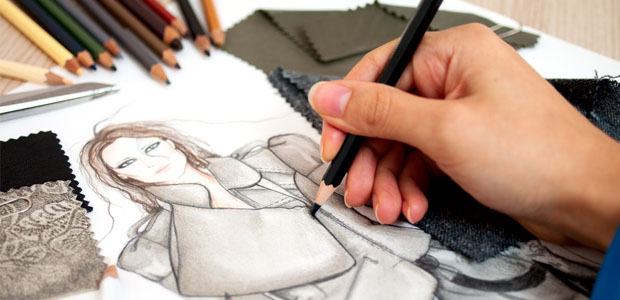Advertisement
Smarten Up With Eco Fashion Week’s Smart Talks
Today marks the final day of Vancouver’s annual Eco Fashion Week. All day and into the evening will be Smart Talks seminars for fashion industry members. These seminars are free (although registration is required) and will discuss matters of sustainability throughout all processes of the fashion industry: textiles and manufacturing, labour, and recycling and upcycling, … Continued

Today marks the final day of Vancouver’s annual Eco Fashion Week. All day and into the evening will be Smart Talks seminars for fashion industry members. These seminars are free (although registration is required) and will discuss matters of sustainability throughout all processes of the fashion industry: textiles and manufacturing, labour, and recycling and upcycling, among other things.
Although we may not all fit into the category of “fashion industry members,” as individuals each with a unique sense of style, we can do many things to ensure that our own fashion choices are sustainable. Such things include:
- Thrifting. The old adage “One person’s trash is another person’s treasure” rings true when it comes to thrifting (short for thrift shopping). Often you can find items that are in excellent condition—some brand new with the tags still on. And don’t limit yourself to just clothes, thrift shops are an excellent place to find unique home décor with that vintage-y feel.
- Hosting a clothing swap. Many of us have clothes sitting in our dressers that we thought were great at the store, but ended up not fitting into our wardrobe. Invite a bunch of friends over for a fun night of snacks and wine, and ask them to bring clothes and accessories they no longer wear to “swap.” A good strategy is to give each person a poker chip for each item she brings, then let everyone take turns choosing something they like until all their chips are gone. Any unclaimed clothes can be donated to the nearest shelter or thrift store.
- Upcycling your current wardrobe. Sick of your current wardrobe? Revamp it with upcycling. Projects may include changing the neckline of tops; converting old jeans to skirts, shorts, or even bags; or jazzing up pieces with embroidery or appliqué. Pinterest is an excellent place to go for ideas—the possibilities are endless.
- Choosing sustainable fabrics. Organic cotton, hemp, and bamboo are better options when it comes to textiles, as the growing process doesn’t use chemicals. Plus, did you know that washing synthetic fibres results in tiny plastic particles coming off the clothes and ending up in the oceans? The worst culprits are polyester and acrylic.
- Opting for quality over quantity. It’s easy to get sucked into the habit of buying cheap, trendy pieces; however, even if you wanted to wear these items into next season, chances are they won’t last. Reduce waste by choosing items that are made with good quality fabrics and are carefully constructed.
- Using non-toxic laundry detergents. Many laundry detergents contain toxic chemicals such as chlorine bleach, phosphates, and synthetic fragrances. Avoid these ingredients by choosing a chemical-free laundry soap. The staff at your local natural health store will help you find one that suits your needs and budget.
- Hanging clothes to dry. When possible, hang your clothes to dry rather than using a clothes dryer. Doing so for only six months saves 700 pounds of CO2 from entering the atmosphere. Although we can’t air dry outside year-round, drying racks can be purchased for air-drying inside.
Eco Fashion Week was founded five years ago with the goal of “continually, and feverishly, provoking, challenging, and propelling all aspects of the fashion industry, towards ensuring solutions that balance ecology, society, and culture.”
If you would like to attend Smart Talks seminars, check out Eco Fashion Week’s website for registration.
Don’t live in Vancouver? Search out local eco fashion events in your area. Eco fashion is a growing industry—you simply have to do a quick search on the Internet to find local green living conventions, thrift/vintage store events, and clothing swaps/flea markets.





